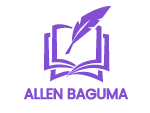‘…let our curriculum experts and development planners read and internalise South Korea’s Tortoise Programme…it has a lot of lessons for African education reforms…periodic renaming of the syllabi and curricula has so far not yielded the anticipated outcomes…the core content remains the same’. The new curriculum for Uganda’s education continues to draw reactions from various stakeholders here and beyond. Mzee BSN, the non-Ugandan ‘Ugandan’ raised this as we read press reports about the proposed curriculum changes at advanced level (higher school certificate) in Uganda’s education.
The report quotes an official of the National Curriculum Development Centre (NCDC) stating that A-level students will have ICT as a cross-cutting subject in the new curriculum, replacing General Paper. ‘This is wrong and wrong, from all angles’, Mzee argues. He adds that General Paper, should instead be refocused and enriched, and perhaps renamed Elementary Political Economy and Ethics. And this should be cross-cutting for both arts and science students (who coined the term ‘learners?).
This paper should be prepared with inputs from experts in the humanities, notably political science and history, anthropology, ethics, culture, religion, international relations, language and communication. Structured in a modular format, it does not have to be taught by one teacher (facilitator, as the new curriculum calls teachers), but rather by different experts in these and other fields.
According to Mzee, the content and teaching of this subject must emphasise those elements and values that makes us truly human, especially in this era. ‘What is the current position and future of Uganda and Africa in global affairs, as we see them today? How did the current global imbalance evolve and what are its implications for our destiny as a people and nations…how do we capture and use the emerging opportunities to our advantage? These and similar questions are essential in orienting young students, be they in the humanities or sciences.
A student aspiring to become a mechanical engineer must know the implications of his knowledge to the destiny of his mother country. This is what made the Asian Tigers breakthrough. Japan’s phenomenal industrial transformation in the seventies has its roots in the country’s culture, life philosophy and beliefs. The Samurai ideology is in every Japanese’s memes: a worker in a factory sees his job as a community obligation and a national duty.
The employer see his employees as members of a family and community making their input into the national good. It is this ideology that has seen Japan, described by one pundit as four rocky mountainous islands, with no natural resources to talk of, no minerals, rise and become an industrial power. It is this same ideology and life philosophy that catapulted South Korea into her present industrial might.
The Tortoises (students sent to European and American technology institutes and universities) knew they had a national duty, a mission and obligation, not merely learning for individual personal advancement. This attitude and mindset come from structured programmes such as Saemaul Undong (new thinking) which saw Korea jump from poverty into prosperity in the same period that it attained independence as many African countries.
The Asian Tigers only adopted technology to serve their development trajectory informed by and anchored on their life philosophy, systems and world view. It is this that General Paper will instil in the students at this level, albeit introductory. It is a sine qua non, for both arts and science students. ICT is good and essential, but on its own will not transform us. It is a tool. And like any tool, it can be a good servant but a bad master. The frequent cases of hacking, bank frauds, pirating and other vices are only a tip of what will happen if we simply focus on ‘employable skills’ as the primary factor.
As President Museveni argued during the Transform Africa Summit 2013, ICT cannot be ‘eaten without sauce’(okuginyaata). The sauce with which ‘to eat’ ICT, is what this paper, will instil in these students. We therefore must go back to the drawing board. General Paper, renamed, restructured both in content and mode of teaching, is still essential at advanced level. We have enough experts to create and teach this subject.
“It is a sine qua non, for both arts and science students. ICT is good and essential, but on its own will not transform us. It is a tool. And like any tool, it can be a good servant but a bad master.
Matsiko Kahunga

